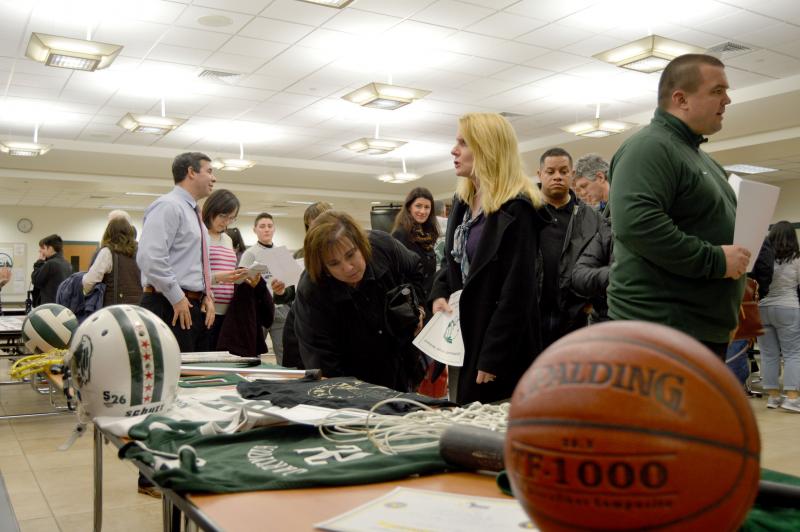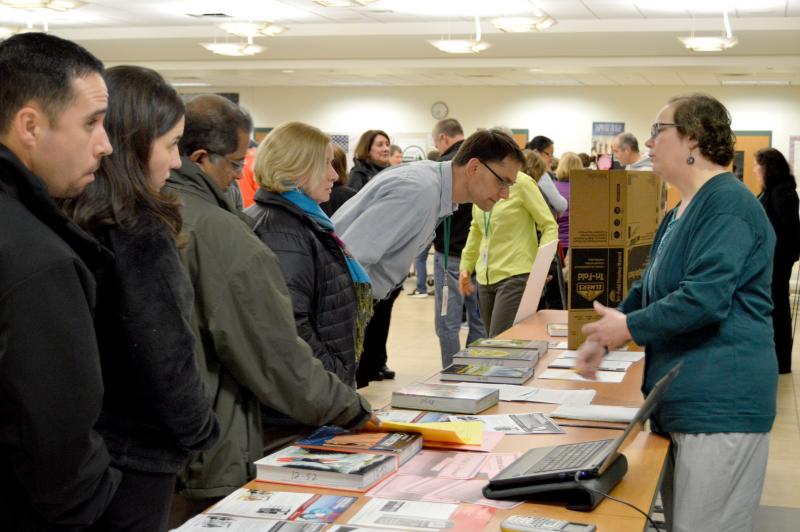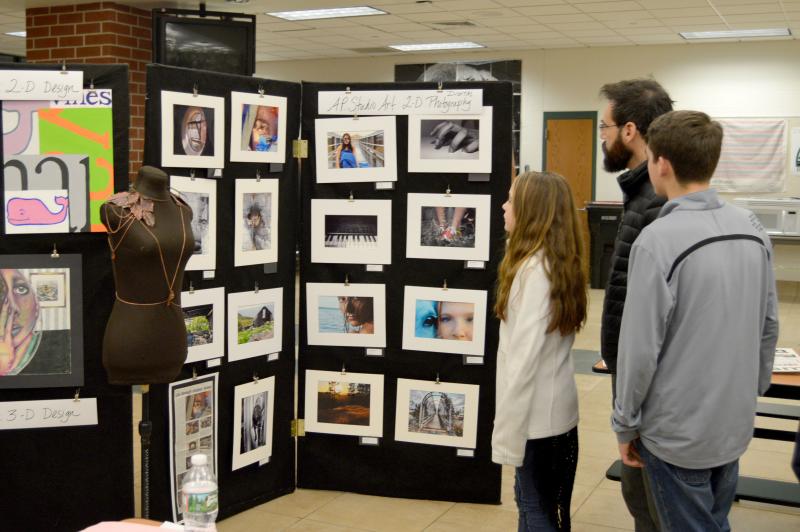Dartmouth Schools prepare eighth graders, parents for high school
Transition from middle school to high school can be difficult for many students. Dartmouth High faculty want students to know that they have options.
On Feb. 3, Dartmouth High School staffers introduced themselves to eighth graders and their parents during Eighth Grade Step-Up Night. The middle schoolers had a field trip during school hours that day, and parents were invited later in the evening to meet faculty and tour the facility.
Everyone from the Medical Careers Club to Sam Brodsky’s robot team were there to make an impression on parents.
Michael Martin, a graduate of Dartmouth High and the dean of facilities, discussed how administration at the school operates. There is a principal, an associate principal and three dean of students, each with their own area of focus.
Principal John Gould has a leadership role among students and faculty and Associate Principal Rachel Chavier helps direct the curriculum and analyzes data, such as MCAS scores.
“Sometimes people have a question of what a dean is because, if you came through Dartmouth High School, you’re used to a principal and two assistant principals,” Martin said to parents. “A dean is a little different than an assistant principal. The main role of a dean of students is that of a case manager.”
He said he’s responsible for one-third of the alphabet and works with the guidance counselors and social workers. The deans also operate as school leaders, monitoring the school and the classrooms.
“We take a school of about 1,051 and make it smaller,” he said. “Your sons and daughters will not slip through the cracks.”
Christopher Boyle, dean of student services, said the majority of students who visit the deans’ offices aren’t there for punitive reasons. Instead, students are there trying to resolve conflict before it starts, but deans will discipline if it becomes necessary.
“If we have a student that may be experiencing some challenges socially or emotionally, we work with our social workers, our guidance councilors to support those students,” said Boyle. “We form a team that supports your children. In doing that, we have found is that less and less of our time becomes about conduct, and it becomes more about support.”
The guidance department was also there to inform parents about the options available to high schoolers, including advanced placement courses and extracurricular. They advised that any student who’s looking to enter higher level, college-credit courses to start planning accordingly as soon as they leave middle school.
To help make that happen, the guidance department will be visiting the middle school, likely later in February, to assist with scheduling. The school day at Dartmouth High is broken into four, 86-minute periods or blocks. The year is divided into two semesters.
Janice Sharp, dean of students, had some advice for next year’s freshmen class: “Get involved.”
“High school should be the best time of their lives, and I want them to become involved, whether it’s sports or music or one of the many clubs that we offer,” she said.
Following the 20-minute presentation, parents were given the opportunity to explore the school, where teachers and students groups set up booths to introduce themselves.
















